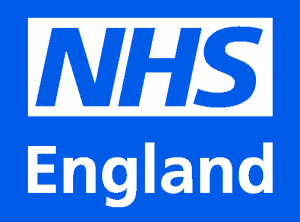 Evidence-Based Interventions programme
Evidence-Based Interventions programme
NHS England
Opens: 4 July 2018
Closes 28 September 2018
Overview
Research evidence shows some intervetions (medical procedures and treatments) are not clinically effective or only effective when they are performed in specific circumstances. And as medical science advances, some interventions are superseded by those that are less invasive or more effective.
At both national and local levels, there is a general consensus that more needs to be done to ensure the least effective interventions are not routinely performed, or only performed in more clearly defined circumstances.
NHS England has formed a new national collaboration with the Academy of Medical Royal Colleges, NICE (The National Institute for Health and Care Excellence), NHS Clinical Commissioners and NHS Improvement’ GIRFT (Getting It Right First Time) programme to turn this consensus into action – the Evidence Based Interventions Programme. This programme is counterpart to the items that should not be routinely prescribed in primary care programme launched in early 2018, www.england.nhs.uk/medicines/items-which-should-not-be-routinely-prescribed/.
The proposals have been jointly developed by NHS England, NHS Clinical Commissioners, the Academy of Royal Medical Colleges, NICE and NHS Improvement’s GIRFT programme in collaboration with the Royal Colleges and patient groups such as Healthwatch.
The proposals aim to reduce avoidable harm to patients, save precious professional time, help clinicians maintain their professional practice in line with the changing evidence base, create headroom for innovation and maximise value and avoid waste for patients and taxpayers.
NHS England are publicly consulting on the design principles of the programme, the interventions we should target initially and proposed clinical criteria, the activity goals we should set and delivery actions, including proposed new terms in the NHS Standard Contract.
During the consultation period NHS England are also hosting face to face events and a series of webinars (online meetings), to gather further clinical, professional and patient views. This will include patient and public events, webinars for CCGs and providers, an event co-hosted by Healthwatch England for their members, events jointly run with Age UK, NHSCC, the Health and Wellbeing Alliance, The NHS Youth Forum and Choices. Please contact NHS England at england.ebinterventions@nhs.net to learn more about these events.
You can read more about the Evidence Based Interventions programme on the NHS England website, www.england.nhs.uk/evidence-based-interventions/.
Initially targeted interventions
17 interventions are proposed to targeted initially:
Interventions that should not be routinely commissioned
- Snoring Surgery (in the absence of OSA)
- Dilatation and curettage (D&C) for heavy menstrual bleeding in women
- Knee arthroscopy for patients with osteoarthritis
- Injections for nonspecific low back pain without sciatica
Interventions that should only be commissioned or performed when specific criteria are met
- Breast reduction
- Removal of benign skin lesions
- Grommets for Glue Ear in Children
- Tonsillectomy for Recurrent Tonsillitis
- Haemorrhoid surgery
- Hysterectomy for heavy menstrual bleeding
- Chalazia removal
- Arthroscopic shoulder decompression for subacromial shoulder pain
- Carpal tunnel syndrome release
- Dupuytren’s contracture release
- Ganglion excision
- Trigger finger release
- Varicose vein surgery
Consultation documents
- Evidence Based Interventions: Consultation document
- Easy read consultation guide
- Frequently asked questions
What happens next
Responses will be taken into account and considered fully before deciding the final approach. Any wording which, following consultation, we determine should be added to the NHS Standard Contract will be included in the 2019/20 version of the Contract, to be published later this financial year.

